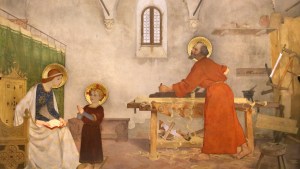Last week, freight rail companies and unions representing tens of thousands of workers came to a tentative agreement, avoiding a potential rail strike that would have caused significant disruption to supply chains throughout the US. Almost every part of the US economy relies on trains — from grocery stores to livestock farms to power plants.
According to the New York Times, the agreement came just 24 hours before a full-blown strike would have gone into effect.
The threat to strike was based on workers’ distress about issues related to pay and having no time off for sickness or medical appointments. Thankfully for rail workers — and the entire country — both sides were able to come to a compromise and a deal was brokered. (More recent news reports say the deal may be in jeopardy, however. The vote by the 12 rail unions, made up of nearly 125,000 rail workers, will be later this week.)
One of the issues that comes up when hearing about a potential mass strike is the role unions play and whether they are helpful or problematic. The Catholic Church has long supported the concept of unions. Aleteia asked Andreas Widmar, a Professor at the Busch School of Business at The Catholic University of America and the author of The Art of Principled Entrepreneurship, why this is so.
The Church teaches that work is one of the components of our path to holiness. When we work, we get to participate in God’s creative power in a special way. Work, among other things, distinguishes us from animals in that it engages both our physical and spiritual nature.
As such, the Church has always taught that there is an obligation to work for those who are able (as St. Paul states in 2 Thessalonians), and when it became necessary because of industrialization and other changes, the Church has also consistently stated that there exists a right to work.
In line with that, there is a right to unionize, for workers to get together and speak/negotiate with the ownership of a company as a group. In a sense, this is no different than the owners who invest in a company getting together and speaking/negotiating with the employees as one voice.
We also asked Professor Widmer what Catholics should consider when they’re digesting news related to workers’ rights and labor laws. He said that it’s important to remember that unions are a right of workers, even if what they ask at times is inconvenient or uncomfortable. He said it’s also important to recognize that labor and capital are not adversaries, but complementary partners in the work and creativity of a company.
This is not a zero-sum game, but a beautiful symbiosis. Working out disagreements and conflicts are a part of that complementarity. That can include a strike, but ideally both parties will put the right of employees to work above their other objectives and find workable solutions to support that goal. Going too far in either direction (mutually exclusively demands of unions or owners) makes both sides lose equally.
The most important recognition in all this — and I think the key to the Catholic Social Teaching in this regard — is to always seek solutions that reflect the fact that the economy exists to serve man, not the other way around.



